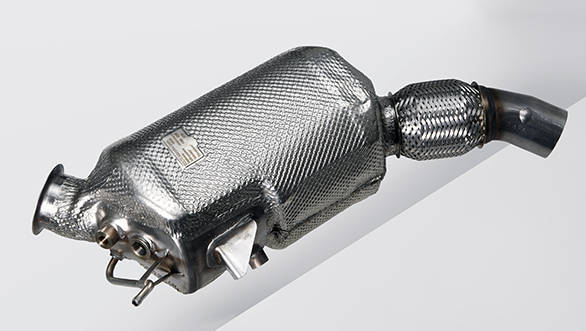Nitin Gadkari: BSVI norms to be implemented in India from April, 2020
The most recent offshoot of the sudden spotlight on Delhi's pollution problem is the decision taken by Transport Minister Nitin Gadkari to bring forward the date for putting BSVI standards into effect while skipping the intermediate BSV stage. The plan to implement BSVI norms, which was initially scheduled for 2024 according to the National Auto Fuel Policy dated April 27, 2015, has now been slotted for April 2020.
The decision was taken in a meeting presided by Gadkari, with the Heavy Industries Minister Anant Geete, Environment Minister Prakash Javadekar and Oil Minister Dharmendra Pradhan in attendance. The Transport Minister insists that all ministries have assured their cooperation in this direction.
The time required for implementation of each stage was estimated at around three years each according to the the roadmap put forward by the Auto Fuel Policy, it should take six years to bring in BSV and BSVI norms subsequently. The roadmap also takes into account the time taken for phased introduction of fuel complying with the stage norms across India.
The decision chops off two years from this plan. Last year, when the Ministry of Road Transport and Highways had first brought up the proposal to skip BSIV completely, many automakers had labelled it as a tad bit optimistic. Mahindra & Mahindra executive director Pawan Goenka in March, 2015 had said, "The jump from BS-IV (equivalent of Euro 4) to BS-VI (equivalent of Euro 6) standards by 2023 would be too much of a technological jump for the auto firms. We feel shifting from Euro 4 to Euro 6 would be difficult."
 BSV requires auto manufacturers to fit all diesel cars with the diesel particulate filter
BSV requires auto manufacturers to fit all diesel cars with the diesel particulate filter
BSV requires auto manufacturers to fit all diesel cars with the diesel particulate filter which can only be effective if the fuel supplied complies with the stage norms. The BSVI norms further mandate that diesel cars be equipped with selective catalytic reduction technology a more advanced emission control technology. According to SIAM executive director (tech), KK Gandhi, "Though the fuel quality is not much different in BSV and BSVI, the engines have to be compliant to use the fuel. In BSV, vehicles have to be fitted with a diesel particulate filter, which needs to be optimised for Indian road conditions. In stage VI, selective catalytic reduction technology has to be optimised. At each stage, the technology would have to be validated over 6 lakh to 7 lakh kilometres. Given the complexity of the process, these technologies can only be optimised in series and not simultaneously. It is not possible to skip BS-V."
Automakers estimated an investment of Rs 70,000 crore and Rs.90,000 crore in efforts to upgrade the technologies. This would ultimately be passed on to the customers, thereby making cars, SUVs and commercial vehicles significantly more expensive.
Another side to this is that even if the vehicles are made to comply with BSVI standards, the environmental benefits will be nulled if the grade of fuel doesn't match. As of now, while BSIV norms are applicable to all four-wheelers across 33 cities in India, BSIV fuel is only available in the NCR region and 13 major cities. The two-wheelers meanwhile adhere to BSIII standards and have not been taken into account in the decision to skip BSV.
The argument cited for skipping BSV is that the difference in BSV and BSVI norms isn't significant. The other factor is that BSVI norms are more 'fuel neutral' which means that there would be no disparity in the emissions from vehicles that run on diesel and petrol, if the fuel quality and the vehicles comply with the standard.
This development comes close on the heels of the recent ban on sale of diesel vehicles above 2000cc in Delhi. Three automanufacturers Mahindra, Mercedes-Benz and Toyota have jointly moved the Supreme Court to withdraw the ban. The next hearing will be held on January 20, 2015. Watch this space for more updates.
Also see:
SC ban on 2000cc diesel vehicle registration in Delhi stays despite manufacturers' plea
Simple Tech: Why diesel vehicles are being singled out in Delhi
Delhi has a pollution problem but the solutions do not make any sense
.








